Mortellement atteint d'une flèche empennée,
Un Oiseau déplorait sa triste destinée,
Et disait, en souffrant un surcroît de douleur:
»Faut-il contribuer à son propre malheur !
Cruels humains ! vous tirez de nos ailes
De quoi faire voler ces machines mortelles.
Mais ne vous moquez point, engeance sans pitié :
Souvent il vous arrive un sort comme le nôtre.
Des enfants de Japet toujours une moitié
Fournira des armes à l'autre.«
Un Oiseau déplorait sa triste destinée,
Et disait, en souffrant un surcroît de douleur:
»Faut-il contribuer à son propre malheur !
Cruels humains ! vous tirez de nos ailes
De quoi faire voler ces machines mortelles.
Mais ne vous moquez point, engeance sans pitié :
Souvent il vous arrive un sort comme le nôtre.
Des enfants de Japet toujours une moitié
Fournira des armes à l'autre.«
envoyé par Juha Rämö - 29/10/2017 - 23:59
Langue: italien
Traduzione italiana di Maria Vidale
Da: Jean de La Fontaine, Favole a colori
Con illustrazioni di Marc Chagall
Donzelli Editore, Roma, 2009
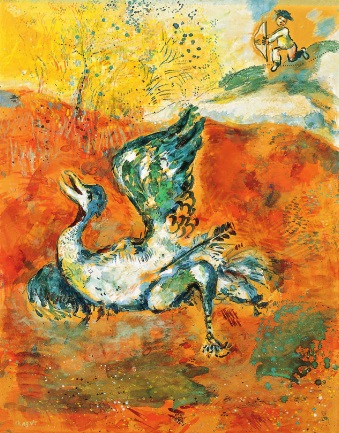
Da: Jean de La Fontaine, Favole a colori
Con illustrazioni di Marc Chagall
Donzelli Editore, Roma, 2009

Marc Chagall, L'Oiseau blessé d'une flèche
L'UCCELLO FERITO DA UNA FRECCIA
Ferito mortalmente da una freccia
impennata a dovere,
un uccello piangeva il suo dolore.
“È una curiosa beffa della sorte
che a trafiggermi il cuore
sia questa freccia che ha colto il suo bersaglio
grazie alle penne delle mie stesse ali!
L'uomo è davvero un essere crudele
se mi spenna per poi colpirmi meglio!
Però anche lui morrà
per i suoi stessi strali: sulla Terra
abitata da stolti e brutali,
di questi, sempre, almeno una metà
farà armi perfette, micidiali,
mentre l'altra metà
sarà felice di usarle per la guerra.”
Ferito mortalmente da una freccia
impennata a dovere,
un uccello piangeva il suo dolore.
“È una curiosa beffa della sorte
che a trafiggermi il cuore
sia questa freccia che ha colto il suo bersaglio
grazie alle penne delle mie stesse ali!
L'uomo è davvero un essere crudele
se mi spenna per poi colpirmi meglio!
Però anche lui morrà
per i suoi stessi strali: sulla Terra
abitata da stolti e brutali,
di questi, sempre, almeno una metà
farà armi perfette, micidiali,
mentre l'altra metà
sarà felice di usarle per la guerra.”
envoyé par Riccardo Venturi - 30/10/2017 - 11:23
Langue: anglais
Traduzione inglese / English translation / Traduction anglaise: Elizur Wright
La Fontaine, Fables (verse translation, 2 vols. 8vo, Boston, 1841; 2nd ed., New York, 1859)
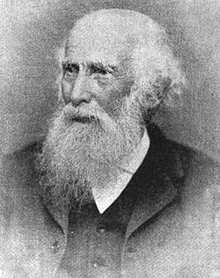
La Fontaine, Fables (verse translation, 2 vols. 8vo, Boston, 1841; 2nd ed., New York, 1859)

Elizur Wright (1804-1885)
THE BIRD WOUNDED BY AN ARROW
A bird, with plumèd arrow shot,
In dying case deplored her lot:
»Alas!« she cried, »the anguish of the thought!
This ruin partly by myself was brought!
Hard-hearted men! from us to borrow
What wings to us the fatal arrow!
But mock us not, ye cruel race,
For you must often take our place.«
The work of half the human brothers
Is making arms against the others.
A bird, with plumèd arrow shot,
In dying case deplored her lot:
»Alas!« she cried, »the anguish of the thought!
This ruin partly by myself was brought!
Hard-hearted men! from us to borrow
What wings to us the fatal arrow!
But mock us not, ye cruel race,
For you must often take our place.«
The work of half the human brothers
Is making arms against the others.
envoyé par Juha Rämö - 30/10/2017 - 00:03
Langue: finnois
Traduzione finlandese / Finnish translation / Traduction finnoise / Suomennos: Yrjö Jylhä
Composed as a song by Toni Edelmann.


Composed as a song by Toni Edelmann.

Yrjö Jylhä (1903-1956)

Toni Edelmann.
NUOLEN HAAVOITTAMA LINTU
Kun lintu rintaansa sai sulkapäisen nuolen,
osaansa vaikeroi se voimin viimeisin.
Näin itki tuskissaan se murtamana huolen:
»Omaako surmaani mä kurja joudutin?
Oi, julma ihminen, on asees' siivekkäitä,
sulilla lintujen voit lennätellä näitä.
Mutt' muista, säälitön, jos pilkkaat kuolevaa,
näin usein sinutkin lyö käsi kostotarten
ain' ihmiskunnasta kun puolet valmistaa
aseita toista puolta varten.«
Kun lintu rintaansa sai sulkapäisen nuolen,
osaansa vaikeroi se voimin viimeisin.
Näin itki tuskissaan se murtamana huolen:
»Omaako surmaani mä kurja joudutin?
Oi, julma ihminen, on asees' siivekkäitä,
sulilla lintujen voit lennätellä näitä.
Mutt' muista, säälitön, jos pilkkaat kuolevaa,
näin usein sinutkin lyö käsi kostotarten
ain' ihmiskunnasta kun puolet valmistaa
aseita toista puolta varten.«
envoyé par Juha Rämö - 30/10/2017 - 00:01
Langue: polonais
Traduzione polacca di Władysław Noskowski [1876]
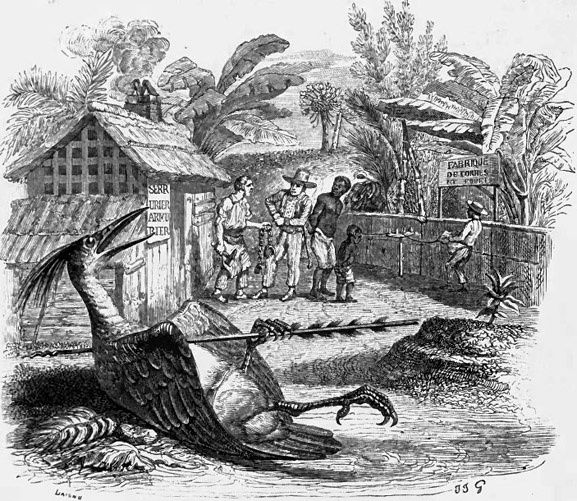
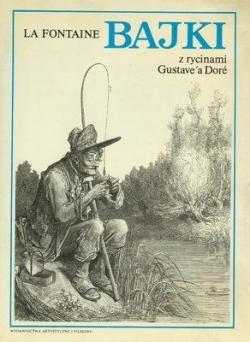


PTAK ZRANIONY STRZAŁĄ
Wartkim strzały polotnej ugodzony ciosem,
Ptak nieszczęsny, konając, płakał nad swym losem:
«Ludzie! my wam broń w rękę podajemy sami!
Z naszych skrzydeł rwanemi wzmacniacie piórami
Grot morderczy, co świszcząc wśród powietrznych szlaków,
Bieży jak błyskawica, jako grom uderza.
Lecz nie szydźcie, okrutni, z doli nędznych ptaków;
I wam dłoń Przeznaczenia równy los wymierza.
Nie zbraknie strzał na ziemi, rodzie Kainowy:
Dostarcza ich pół świata dla drugiej połowy.»
Wartkim strzały polotnej ugodzony ciosem,
Ptak nieszczęsny, konając, płakał nad swym losem:
«Ludzie! my wam broń w rękę podajemy sami!
Z naszych skrzydeł rwanemi wzmacniacie piórami
Grot morderczy, co świszcząc wśród powietrznych szlaków,
Bieży jak błyskawica, jako grom uderza.
Lecz nie szydźcie, okrutni, z doli nędznych ptaków;
I wam dłoń Przeznaczenia równy los wymierza.
Nie zbraknie strzał na ziemi, rodzie Kainowy:
Dostarcza ich pół świata dla drugiej połowy.»
envoyé par Krzysiek - 30/10/2017 - 22:11
Quasi tutte le favole di La Fontaine sono state messe in musica. In particolare, come precisa Emily Ezust su Lieder.net, "L'oiseau blessé d'une flèche" ha ricevuto l'attenzione dei compositori Heitor Villa-Lobos, nel 1913, e Marcelle de Manziarly, nel 1935. Aggiungo anche Kryštof Mařatka, compositore e pianista ceco, nel 1996.
B.B. - 30/10/2017 - 20:49
×
![]()








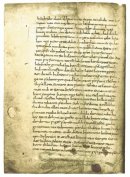
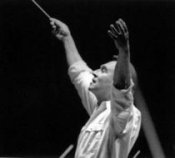
Date de parution: Claude Barbin, Paris, 1668
Jean de La Fontaine: Favole, II, 6
Data di pubblicazione: Claude Barbin, Parigi, 1668
Jean de La Fontaine: Fables, II, 6
Publishing Date: Claude Barbin, Paris, 1668
Musica / Music / Musique:
a. Heitor Villa Lobos, op. 10 (1913)
b. Marcelle de Manziarly, Trois fables de La Fontaine (1935)
c. Kryštof Mařatka (1996) et aa.
La Fontaine deplora la l’impotenza degli uomini a vivere in pace. Egli dimostra la sua tesi attraverso un intermediario: l’Uccello che trae insegnamento dalla sua disgrazia.
Nella mitologia greca Giapeto è un titano, figlio di Urano e di Gaia. È il progenitore della specie umana, sposo di Climene, figlia di Oceano e di Teti, ed è padre di Atlante, Epimeteo, Menezio e Prometeo. Dei suoi quattro figli sappiamo che i primi due avevano preso parte alla rivolta contro Zeus (Giove) e questi li aveva puniti; Menezio, per la sua cattiveria e per la sua tracotante audacia, era stato relegato nell’Erebo profondo; Atlante, di fronte al giardino delle Esperidi, ai confini della terra, doveva sostenere sulle spalle e reggere con le braccia la grande volta del cielo.
Prometeo si schierò dalla parte di Zeus, inducendo a fare altrettanto anche il fratello Epimeteo. Quando riceve da Atena e dagli altri dei un numero limitato di "buone qualità" da distribuire saggiamente fra tutti gli esseri viventi, Epimeteo, senza pensarci troppo, cominciò a distribuire le qualità agli animali ma si dimenticò degli uomini.
La Fontaine blames mankind's impotence to live in peace. His thesis finds demonstration through the intermediary of a bird learning a hard lesson from its own misfortune.
In Greek mythology, Iapetus is a titan, the son of Uranus and Gaia and the ancestor of mankind. His wife is Clymene, the daughter of Oceanus and Tethys, and he is father of Atlas, Epimetheus, Menetius and Prometheus. His first two sons were involved in the rebellion against Zeus, who punished them; Menetius, due to his wickedness and arrogance, was banished to deep Erebus, while Atlas was obliged to support the vault of heaven on his shoulders and with his arms, in front of the Garden of the Hesperides, on the borders of the Earth. Prometheus sided with Zeus and persuaded his brother Epimetheus to do the same. When Athena and the other gods gave him a limited quantity of “good qualities” to be wisely shared among all living beings, Epimetheus did not care that much and distributed all the qualities to animals, leaving mankind apart. [RV]